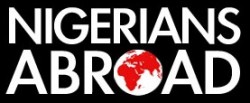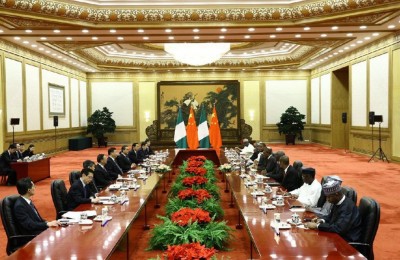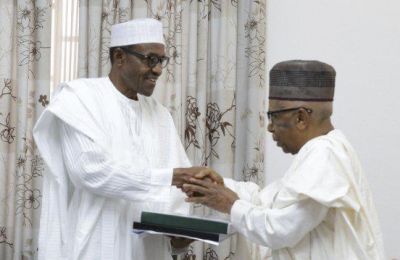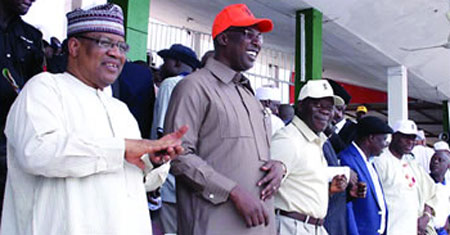By Yemi Ifegbuyi
What does fuel subsidy mean?
Subsidy means benefit given by the government to individuals or businesses whether in form of cash, tax reduction or by reducing the cost of goods and services. The purpose of subsidy is to help individuals and businesses purchase/acquire essential goods and services that they may not be able to afford, under normal circumstances.
Fuel subsidy is a government program created to reduce how much Nigerians have to pay for petroleum products, which include: Petroleum Motor Spirit (Petrol), Automotive Gas Oil (Diesel) and Dual Purpose Kerosene (Kerosene), and to protect the citizens from crude oil volatility on the international market.
Fuel subsidy is particularly popular in oil producing countries, such as: Venezuela, Iran, Saudi Arabia, Egypt, Burma, Malaysia, Kuwait, China, Taiwan, South Korea, Trinidad and Tobago, and Brunei.
What is the Petroleum Products Pricing Regulatory Agency (PPPRA)?
The PPPRA is a regulatory body in-charge of overseeing the full deregulation and liberalization of Nigeria’s petroleum downstream sector (meaning the refining of crude oil and the selling and distribution of products derived from it, which include natural gas, petrol, diesel and kerosene).
The establishment of the PPPRA started in August 2000, with the setting up of a 34 member Special Committee on the Review of Petroleum Products Supply and Distribution (SCRPPSD) by former president Olusegun Obasanjo. The PPPRA was formally launched on June 19, 2003.
PPPRA mission is to “To reposition Nigeria’s downstream sub-sector for improved efficiency and transparency.”
PPPRA believes that pricing and the removal of fuel subsidy are conditions necessary for deregulation and liberalization of the petroleum sector.
Why is government keen to remove fuel subsidy?
The removal of fuel subsidy, following the establishment of the PPPRA, started in January 2001. On January 1, selling prices for Petrol, Diesel and Kerosene were tagged at N26, N26 and N24 per litre respectively. The PPPRA has been responsible for a phased increment of refined crude oil over the past 10 years.
- Fuel subsidy removal is a continuation of government resolution to deregulate and liberalize the petroleum sector.
- Fuel subsidy removal will allow for government to “increase revenue earnings” by saving at least $8 billion annually.
- Fuel subsidy removal will open up the petroleum sector to competitions, higher profits for marketers and possibly attracts greater investment.
- Fuel subsidy removal will allow government to transfer risks associated with market fluctuation to marketers and consumers.
Will fuel subsidy removal makes government to deliver more development programs?
Ideally, because the federal government will save huge sums of money from removing fuel subsidy, it is expected that the government should be able to implement more development projects, such as building roads, providing stable electricity, better healthcare, education and investing in other sectors of the economy.
However, this cannot be guarantee because the problem of under-performing at various levels of government in Nigeria, especially since 1999, is largely due to corruption, contract inflation, big size of government, inconsistency in government policy, ineffective ministries, misappropriation of funds and weak rule of law, as oppose to earning more revenue.
In other word, much money that could be used for development programs in the country are wasted on maintaining big size government.
Why are Nigerians angry?
Online poll conducted by nigeriansabroadlive.com shows that 80 per cent of Nigerians are against the removal of fuel subsidy. This is a huge population of the masses that disagree with the Goodluck Jonathan’s government on the timing and overall decision of fuel subsidy removal; for the government to have disregard the peoples’ grievances is a political suicide.
Majority of Nigerians rely on petrol, diesel and kerosene for both their domestic and business activities. Increase in fuel cost as a result of removing the subsidy means increase in cost of doing businesses (from petty traders to manufacturers and business service providers), which will eventually be pass onto the end consumer, the masses.
Lastly, many Nigerians lack confidence in the national government, and the present administration hasn’t done enough to prove doubters and critics wrong.
What are the advantages of fuel subsidy removal?
There are numbers of benefits in fuel subsidy removal, which is another way of saying full deregulation and liberalization of Nigeria’s petroleum sector. The removal of fuel subsidy will open up the petroleum sector to local and foreign investments (similar to the telecommunication sector), which in-turn will create more jobs for Nigerians directly and indirectly.
Most important, the liberalization of the petroleum sector will reduce government interference, and allow the federal government to focus more on the business of governance, improving social services delivery and building infrastructures. This is important as Nigeria’s economic system shifts more to a private led (open market) economy.
What are the disadvantages of fuel subsidy removal?
Basically, Nigerians will have to pay a bit more for everything. As a developing economy, Nigerians like their counterparts in other modern societies heavily rely on refined crude oil for everything, domestic and business wise. This is particular true in the case of Nigeria, where majority of the people powered their own electricity, literarily, through generators.
It means that Nigerians, many of whom are living below the acceptable universal standard of living will have to work extra hard to survive their everyday woes.
—————-
Yemi Ifegbuyi is a senior editorialist and director of operations for SBG media, publisher of nigeriansbaroadlive.com. He is also a strategic communications consultant on politics and business development, with special interest in North-America, Asia and sub-Sahara Africa. Follow him on Twitter: @tweetyemi















Thank you Mr Ifegbuyi.I want Mr President to wait for a while before removing the fuel subsidy.Government should try as much as possible to solve the problem of power supply,most especially in urban areas.Then they can take any decissìon on fuel subsidy.REMOVAL OF FUEL SUBSIDY IS NOT “FITTED FOR THIS PERIOD OF TIME” IN NIGERIA.
I FOR ONE IS NOT AGAINST FUEL SUBSIDY REMOVAL,BUT HOW FAR AS OUR POLITICAL LEADERS MADE SACRIFICES FOR THE DEVELOPMENT OF THIS COUNTRY.A COUNTRY WHERE THE POLITICAL LEADERSHIP SPEND 25% OF THE NATIONAL BUDGET ON TAKEN CARE OF ITSELF,SHOULD NOT EXPECT ITS POPULACE TO TRUST SUCH GOVT AND SACRIFICE FOR THE COMMON GOOD OF SUCH A NATION.MY SUBMISSION IS GOVT SHOULD FIRST PUT INTO LAW DEATH PENALTY FOR THOSE WHO WOULD LOOT THE PROCEEDS ACCRUING FROM THE SUBSIDY REMOVAL AND A JUMBO REDUCTION IN SALARIES OF POLITICAL OFFICE HOLDERS,BEFORE WE WOULD ACCEPT FUEL SUBSIDY REMOVAL
If government eventually fails in using the funds they will get from the removal of fuel subsidy then the whole aim is a failure. But if at present, government is not making proper use of the funds at hand, can we now trust them to make proper use of the funds that will come from the removal of fuel subsidy? Now i begin to wonder if our problem in this country is lack of funds to carry out projects or corrupt practices of government officials.
I thank Mr President so much for improving our economic sector. I’ll like him to look at some parts of the economy, especially electricity. About 85% of graduates do not have hope for jobs. This $8billion that will be gain from fuel subsidy removal can be use to build industries, factories etc… With it more jobs can be created. At least, if corruption is about 95% before, when this jobs are created it will reduce to 20%. I have many thing to say but this is all i have for now. Once again THANK YOU MR PRESIDENT.
Thanks to Yemi, fuel subsidy is for the good of our nation.
nigerians should dedicate time to pray for mr president on divine wisdom in taking decisions.
Nigerian should persevere in any condition da find dereself.cos our leaderz er feeding on wat belong 2 urz all
FUEL SUBSIDY REMOVAL WILL DO NIGERIANS NO GOOD AND HAS SO FAR DONE THEM NO GOOD THAN TO EXACERBATE THE STANDARD OF LIVING OF THE PEOPLE. IN FACT IT IS GLARING THAT MR PRESIDENT IS CONFUSE,AS HE KNOWS NOT WHAT TO DO. EVEN AT THE REMOVAL OF SUBSIDY, THE ECONOMY CONTINUE TO DWINDLE.
Super share on department of home affairs south africa passports.. It is definitely amongst the most useful that I’ve read in a long time.
We’ve been awaiting this info on home affairs south africa passport…
It is a wise saying that nigeria is yet to benefit the good things that is coming on our way…. Nigeria should understand that crisis will never stop any problem- we re all one- lets focus on the divine purpose of God for Nigeria, nigeria is indeed a great and mighty country with vision, lets work together in order to achieve greater things in Nigeria.. No country can ever grow in the existence of crisis….. NIGERIANs SHINE YOUR EYES….
Subsidy is why government has failed in providing infrastructure to the masses ok, let them tell us how much they make from taxation and sell of our crude oil